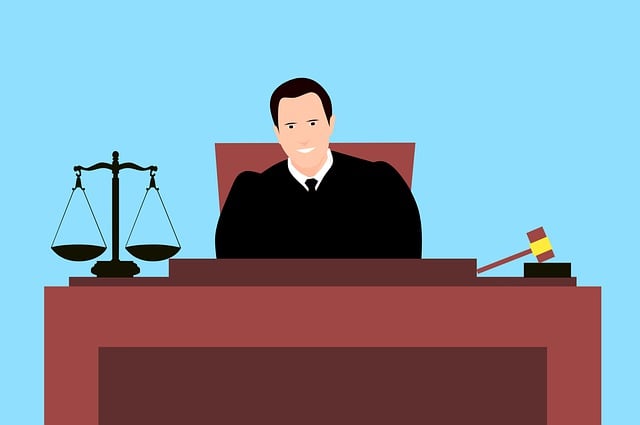Maximizing Your Case with Expert Medical Negligence Attorneys

Navigating medical negligence cases requires a medical negligence attorney to protect your rights an…….
In the intricate world of healthcare, ensuring patient safety and justice is a paramount concern. This is where medical negligence attorneys step into the spotlight, acting as champions for patients who have suffered harm due to medical misconduct or inadequate care. This comprehensive article delves into the multifaceted role of these legal professionals, exploring their expertise, global impact, economic implications, technological integrations, regulatory frameworks, and the challenges they face. By examining these aspects, we aim to provide a holistic understanding of medical negligence attorneys and their contribution to safeguarding patient rights.
A medical negligence attorney, also known as a medical malpractice lawyer, is a legal expert specializing in representing patients who have experienced injuries or adverse outcomes due to the negligence of healthcare providers. Their core responsibilities encompass:
The concept of medical negligence law has evolved over centuries, with roots tracing back to ancient Roman and English legal systems. However, its modern-day form emerged in the 20th century as a response to increasing medical advancements and complex medical practices. Landmark cases, such as Donoghue v Stevenson (1932) in Scotland, laid the foundation for modern medical malpractice litigation, establishing the duty of care healthcare professionals owe to their patients.
Medical negligence attorneys play a pivotal role in several ways:
The impact of medical negligence attorneys is not limited to national borders. Their work has a significant global reach, particularly in regions with robust legal systems and patient-centric healthcare philosophies.
| Region | Key Observations |
|---|---|
| North America | Known for its stringent medical malpractice laws and well-established legal frameworks, the US and Canada have seen extensive medical negligence litigation, leading to improved healthcare standards. |
| Europe | European countries, especially those in Western Europe, have robust patient protection laws, with attorneys playing a crucial role in upholding these rights across diverse healthcare systems. |
| Asia Pacific | Emerging markets like India and China are witnessing a surge in medical negligence cases, driven by increasing healthcare access and growing awareness of patient rights. |
| Middle East | The region’s legal systems are evolving to accommodate modern medical practices, with attorneys advocating for patient safety and justice alongside healthcare reforms. |
Several global trends influence the field of medical negligence law:
The medical negligence attorney industry is influenced by several economic factors:
Investing in medical negligence law firms can be lucrative for several reasons:
Medical negligence attorneys contribute to economic systems in several ways:
Several technological advancements have a direct impact on medical negligence law:
Technological innovations offer both opportunities and complexities:
The medical negligence attorney field is shaped by a web of policies and regulations:
Policies and regulations have a direct impact on the work of medical negligence attorneys:
Medical negligence attorneys face several challenges in their pursuit of justice:
Criticisms of medical negligence attorneys often revolve around perceived conflict of interest, high legal costs, and potential overlitigation. To address these:
In this landmark case, a patient suffered permanent brain damage due to a misdiagnosed condition. The medical negligence attorney successfully argued that the healthcare network’s failure to implement proper diagnostic protocols constituted gross negligence. The settlement set a new benchmark for misdiagnosis cases, emphasizing the importance of protocol adherence.
Key Takeaways:
A patient’s condition deteriorated during a telemedicine consultation due to miscommunication between the patient and provider. The attorney highlighted the clinic’s failure to establish clear consent and communication guidelines for remote care, leading to a substantial settlement.
Lessons:
A medical group sued their insurer for inadequate coverage after a high-profile malpractice case. The attorney argued that the insurer’s failure to provide adequate protection breached their contractual duty, leading to a favorable settlement for the healthcare provider.
Insights:
The medical negligence attorney field is poised for growth in several sectors:
Several emerging trends will shape the future:
To navigate the future, medical negligence attorneys should:
The role of medical negligence attorneys is pivotal in ensuring patient safety, justice, and accountability within the healthcare system. Through their expertise, they navigate complex legal landscapes, advocate for patients’ rights, and contribute to improved healthcare practices. As technology advances, regulations evolve, and global healthcare access expands, these attorneys must remain agile and informed to address emerging challenges.
By delving into the various aspects of medical negligence law, from historical contexts to future prospects, we gain insights into a dynamic field that continues to shape healthcare delivery worldwide. Ultimately, their dedication to patient welfare and legal excellence is a testament to the power of advocacy in driving positive change.
Q: How do medical negligence attorneys help patients?
A: Medical negligence attorneys represent patients who have suffered harm due to healthcare provider misconduct or errors. They investigate cases, gather expert opinions, and formulate legal strategies to seek compensation for injuries, ensuring patients receive fair treatment and accountability from healthcare entities.
Q: What are the common types of medical negligence cases?
A: Common cases include misdiagnosis, hospital-acquired infections, medication errors, surgical mistakes, inadequate informed consent, and failure to obtain necessary tests or referrals. Each requires specialized knowledge to navigate legal complexities effectively.
Q: How long do medical negligence cases typically take to resolve?
A: Case resolution time varies widely. Simple cases may be resolved within a year, while complex litigation can take several years due to extensive investigations, expert witness involvement, and court processes.
Q: Can healthcare providers avoid liability by having insurance?
A: Insurance provides financial protection but does not guarantee immunity from liability. Attorneys still have the legal duty to investigate and prosecute cases up to the limits of the policy, ensuring that healthcare providers fulfill their responsibilities.
Q: What is the impact of technology on medical negligence law?
A: Technology introduces both challenges and opportunities. While it can streamline investigations and case management, it also raises new liability issues related to electronic records security, telemedicine practices, and AI-assisted decision-making. Attorneys must adapt to these developments to provide effective representation.

Navigating medical negligence cases requires a medical negligence attorney to protect your rights an…….

Medical negligence can be a confusing, traumatic experience for patients, but specialized medical ne…….

Medical negligence occurs when healthcare professionals fail to meet accepted standards of care, cau…….

Facing medical negligence? A medical negligence attorney is your best ally. These experts navigate c…….

Seeking immediate assistance from a medical negligence attorney is crucial for individuals with pote…….

Negligence lawsuits arise when individuals or entities fail to exercise reasonable care, causing har…….

Securing maximum compensation for medical negligence is crucial, as it involves complex legal system…….

Medical negligence occurs when healthcare providers fail to meet accepted standards of practice, for…….